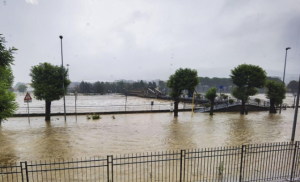Floods are one of the most devastating natural disasters that can occur, especially in a state like Florida, where heavy rains, hurricanes, and tropical storms are common. When floodwaters rise, they can cause significant damage to homes, businesses, and personal property. In such cases, understanding how to handle flood damage claims becomes essential to ensure you receive the compensation you deserve. This guide will walk you through everything you need to know about filing flood damage claims in Florida, providing tips and insights to help you navigate the process smoothly.
Understanding Flood Damage Claims in Florida
Flood damage claims are legal requests made by property owners to their insurance companies to cover the costs of damage caused by flooding. In Florida, where many areas are prone to flooding, having the right insurance coverage and knowing how to file a claim effectively is crucial. Flooding can lead to extensive property damage, including structural issues, mold growth, and loss of personal belongings. Therefore, it’s vital to act quickly and efficiently when dealing with flood damage.

Why Flood Insurance Is Essential in Florida
Florida’s unique geography and weather patterns make it particularly susceptible to flooding. While homeowners’ insurance policies typically cover water damage from internal sources (like burst pipes), they do not cover damage caused by external flooding. For this reason, flood insurance is a necessity for Florida residents. The National Flood Insurance Program (NFIP) provides flood insurance to homeowners, renters, and business owners in participating communities. Without this coverage, recovering from flood damage can be financially crippling.
Steps to Take After Flood Damage Occurs
When your property has been affected by flooding, the first step is to ensure the safety of everyone in the household. Once it’s safe, you should begin documenting the damage as thoroughly as possible. This includes:
- Taking Photographs and Videos: Capture clear images and videos of all affected areas and items. These will serve as crucial evidence when filing your flood damage claim.
- Creating an Inventory: List all damaged or destroyed items, including their estimated value and purchase date. This will help substantiate your claim.
- Contacting Your Insurance Company: Notify your insurance provider about the flood damage as soon as possible. They will guide you through the next steps in the claims process.
Filing a Flood Damage Claim
Filing a flood damage claim can be a daunting process, especially when dealing with the aftermath of a disaster. Here are the key steps to ensure your claim is processed smoothly:
- Review Your Policy: Understand the specifics of your flood insurance policy, including coverage limits and exclusions. This will help you set realistic expectations for your claim.
- Submit Your Claim Promptly: Insurance companies often have strict deadlines for filing claims. Submit your claim as soon as possible to avoid delays.
- Work with an Adjuster: Your insurance company will send an adjuster to assess the damage. Be present during the inspection to answer any questions and provide documentation.
- Keep Detailed Records: Maintain a log of all communications with your insurance company, including dates, times, and the names of representatives you spoke with. This can be crucial if there are disputes later on.
- Seek Professional Assistance: If you’re unsure about any part of the process or if your claim is denied or undervalued, consider hiring a public adjuster. A public adjuster works on your behalf to negotiate with the insurance company and ensure you receive a fair settlement.
Why Choose Florida Public Adjusting?
At Florida Public Adjusting, we understand the complexities of flood damage claims in Florida. Our team of experienced public adjusters is dedicated to helping property owners navigate the claims process with confidence. We offer personalized service, ensuring that every aspect of your claim is handled professionally and efficiently. From initial documentation to final settlement, we advocate for your best interests, striving to maximize your compensation.
Common Challenges in Flood Damage Claims
Filing a flood damage claim is not without challenges. Some common issues include:
- Delays in Processing: Insurance companies can take weeks or even months to process claims, leaving you in limbo.
- Lowball Settlements: Insurers may offer settlements that do not fully cover the cost of repairs, leaving you with out-of-pocket expenses.
- Denial of Claims: Some claims may be denied due to technicalities or insufficient documentation.
Florida Public Adjusting is here to help you overcome these challenges. Our experts are skilled in negotiating with insurance companies, ensuring that your claim is handled promptly and fairly.
Tips for Maximizing Your Flood Damage Claim
To ensure you receive the maximum compensation for your flood damage, follow these tips:
- Be Thorough: Document all damage meticulously, and don’t overlook minor issues, as they can add up.
- Stay Organized: Keep all paperwork, receipts, and communication records in order.
- Follow Up: Regularly check in with your insurance company and adjuster to ensure your claim is progressing.
- Consider Professional Help: Hiring a public adjuster can significantly increase the likelihood of a favorable settlement.
Last Word
Dealing with flood damage claims in Florida can be overwhelming, but with the right knowledge and support, you can navigate the process successfully. Whether you’re dealing with a minor flood or a major disaster, having a trusted partner like Florida Public Adjusting by your side can make all the difference. We are committed to helping you recover and rebuild, ensuring that you receive the compensation you deserve.
For expert assistance with your flood damage claim, contact Florida Public Adjusting today. Let us help you protect your property and your peace of mind.





